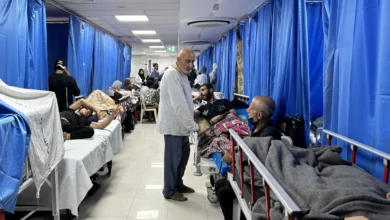
Egypt ranks second among African nations for the number of drugs trials conducted by pharmaceutical companies, due in part to the high cost of healthcare and widespread poverty in Egypt, according to a recent study by the Egyptian Initiative for Personal Rights.
The NGO issued a report on Tuesday suggesting that Egypt is an attractive location for multinational pharamceutical companies seeking to test new drugs, since poverty makes patients more willing to take part.
The absence of a comprehensive and efficient health insurance system in Egypt means more people are likely to take part in trials in order to get free medicines, said the report, titled "Ethical questions about clinical drug trials in Egypt — local challenges and the funding of manufacturers".
The report said that more than half of the drug trials conducted in Egypt are for the treatment of tumors. At least half of the trials are conducted by major drugs companies such as Novartis and Roche.
Poverty and the high cost of treatment prompt Egyptian patients to undergo clinical trials "in order to obtain free treatment even if the results of this treatment are unknown, and even though there are other authorized treatments. This climate facilitates the exploitation of the most vulnerable and needy citizens," the report said.
Among those contributing to the report is a man named Omar, who acts as a broker convincing patients to take part in clinical trials. Omar says he selects his clients based on their poor appearance, convincing them that they will be able to get free treatment. He adds that the majority of patients agree when they hear that the treatment is free.
Over the past two decades, clinical trials have increased sharply in low- and middle-income countries, including Egypt, where there is a high risk of breaching ethical standards, says the report.
The rapid increase in population and a general ignorance of medicines and treatments also make Egypt a tempting location for drugs trials compared to other nations in the Middle East and North Africa.
The international guiding principles for clinical trials stipulate that the people of countries where such trials are conducted should benefit from the results. However, the report said that "only a small number of drugs tested in Egypt are licensed later and made available on the Egyptian market at convenient prices, contrary to what occurs in high-income countries where similar tests are conducted."
When such drugs are made available in Egypt, they are usually too expensive for Egyptian families, with the monthly cost of some treatments 20 times the monthly per capita income in the public sector, according to the report.
The study gives particularl attention to cancer-drug experiments held in Egypt by multinational companies that do not abide by ethical standards. It recommends legislation to regulate such experiments, protect the rights of patients and provide for adequate transparency regarding these experiments and their results.




